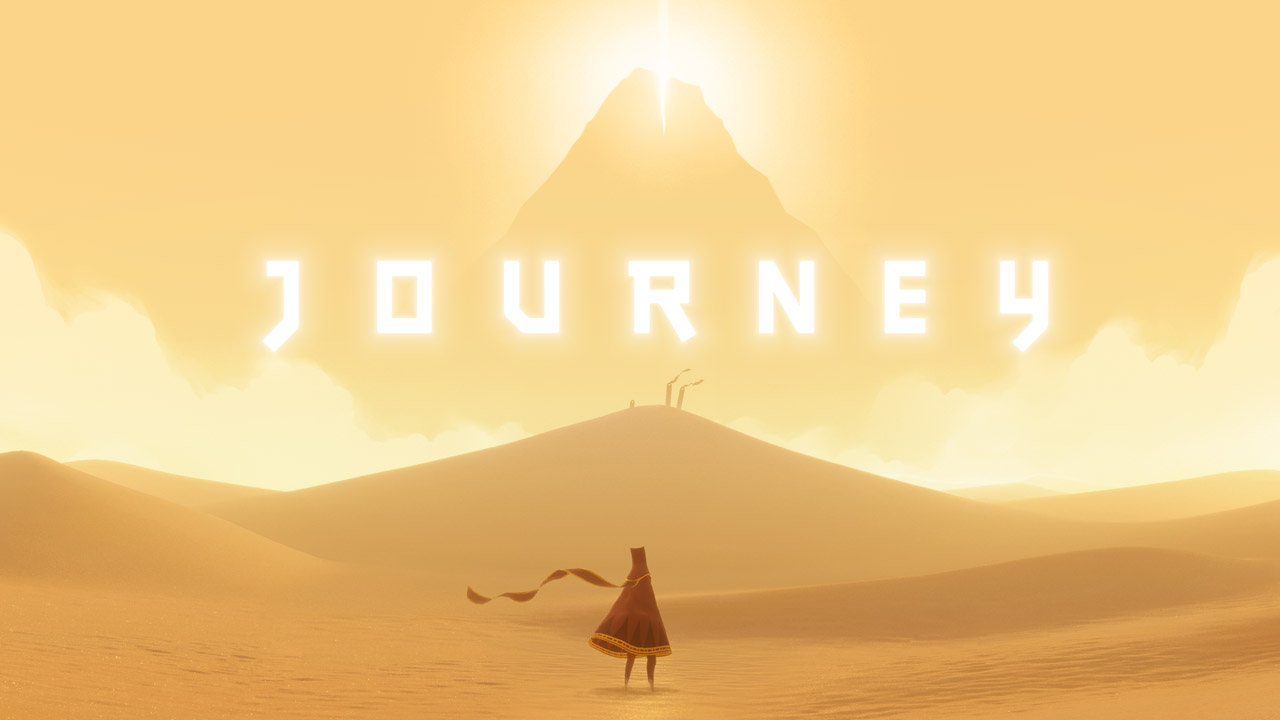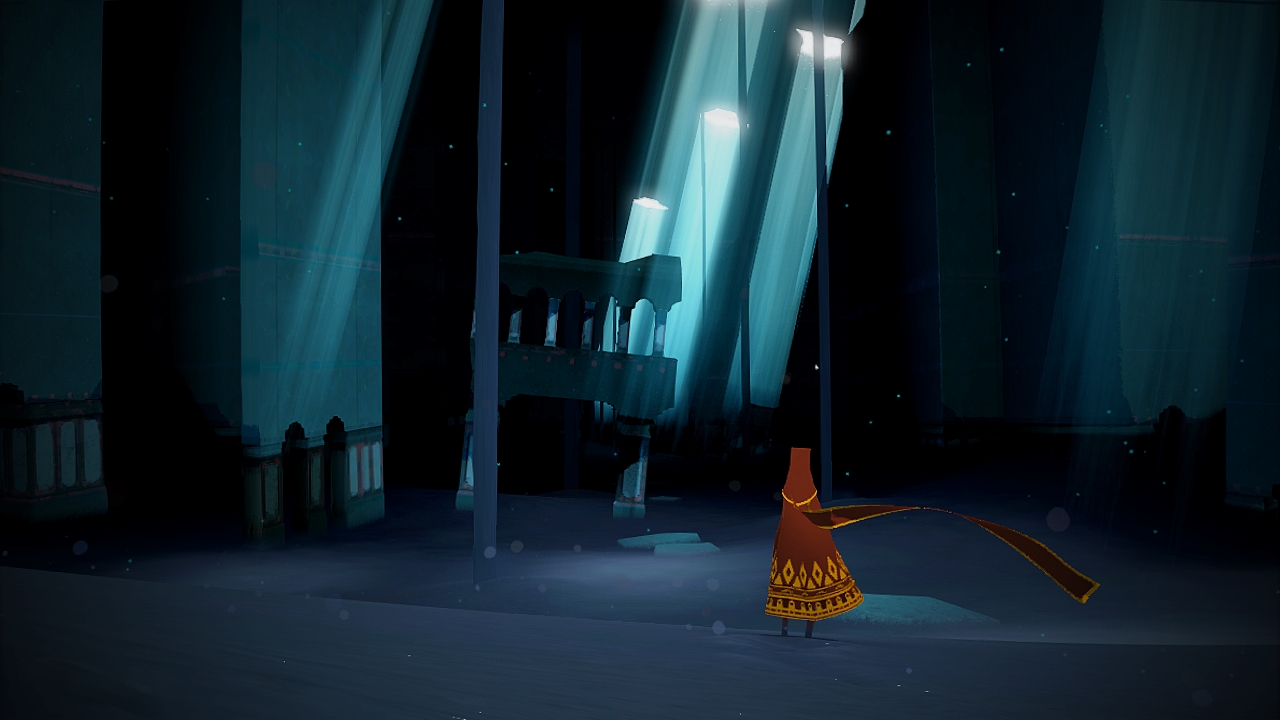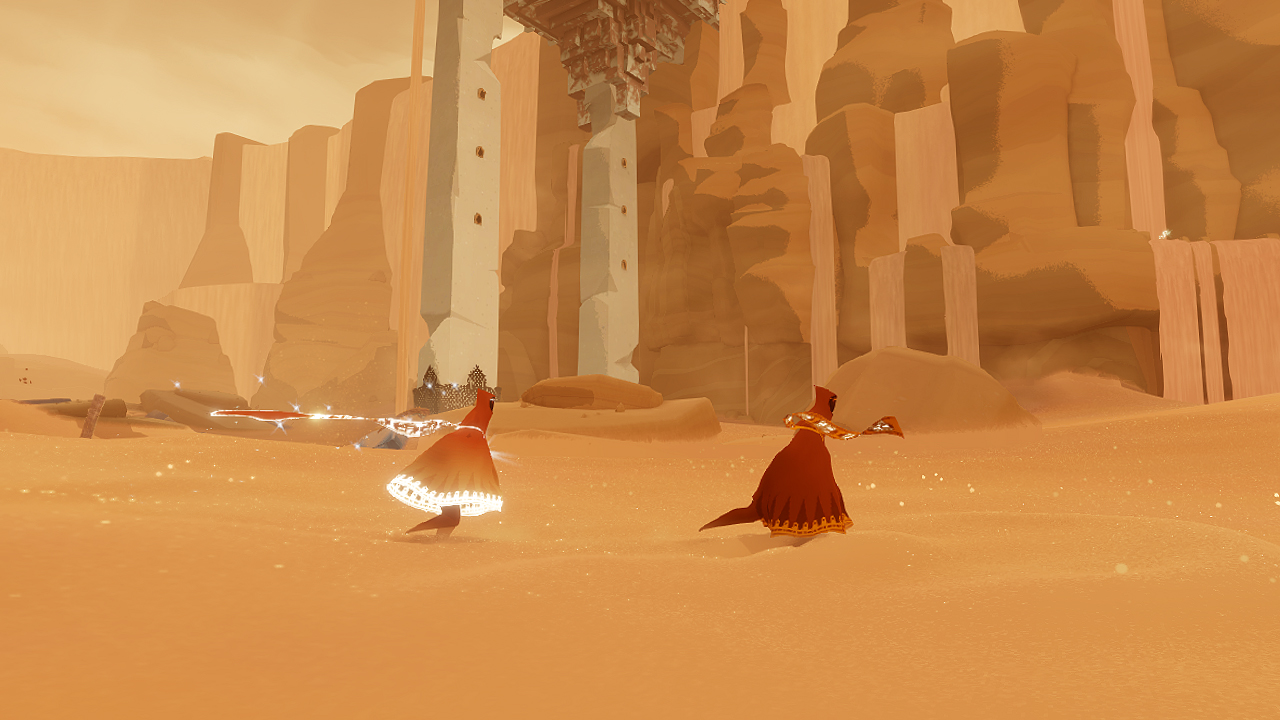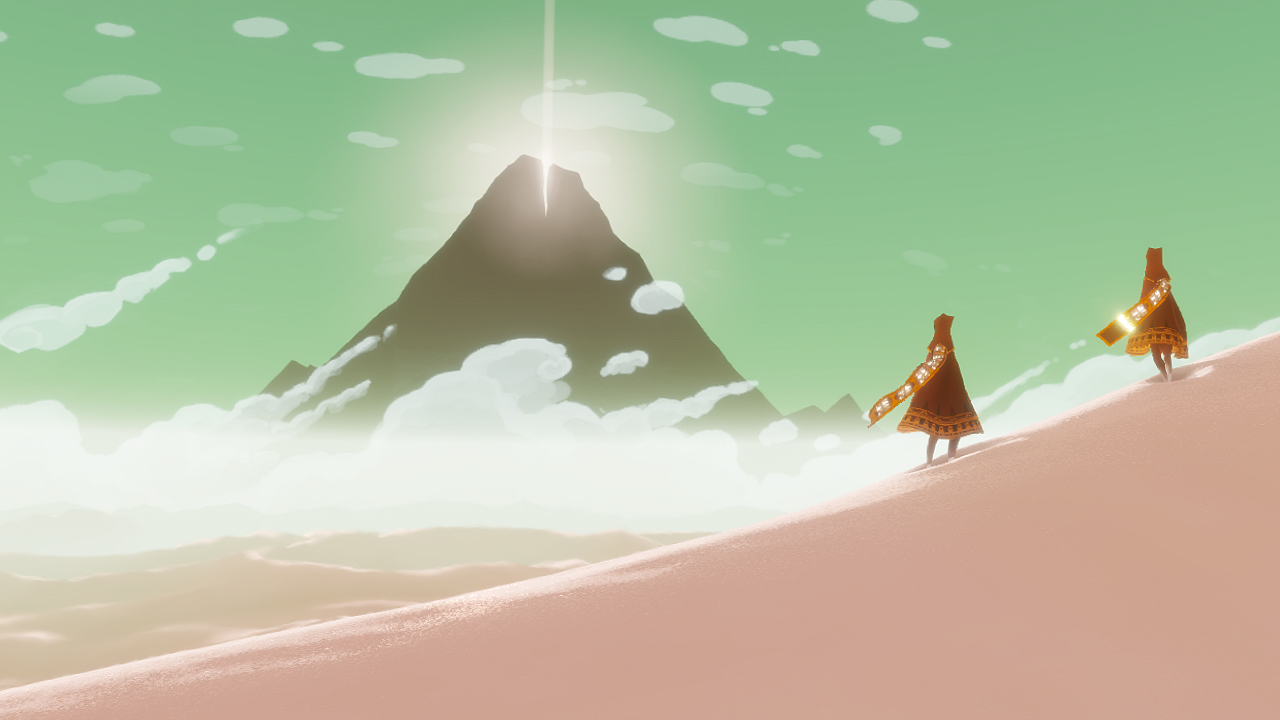This post has not been edited by the GamesBeat staff. Opinions by GamesBeat community writers do not necessarily reflect those of the staff.
It's easy to hate thatgamecompany and its prominent front-man Jenova Chen. Few in the games industry are willing to attach themselves to the games-as-art movement with quite as much emphasis, and fewer still from larger development companies. Creative directors such as Clint Hocking and Ken Levine are certainly champions of the movement, but whilst their games explore themes and ideas beyond the literal, the games themselves can still be enjoyed from a purely mechanical standpoint by those that choose to.
Journey, and thatgamecompany's previous releases Flower and Flow are ambitious because although they're not bad games per se, from a traditional standpoint they're fairly average experiences. There's a little more to Journey in this regard, but it's not a game that's going to challenge you, and nor is it one you'll feel the need to return to in order to get the full experience. Thankfully for anyone willing to spend £10 on what is essentially an art-game, it manages to deliver in spades.
At it's core, Journey is a fairly basic allegory of life, one with a decided lean towards fatalism. Sand is crucial to this idea, as are the gusts of wind that intermittently carry you from location to location. The message here seems to be a very pessimistic one, that ultimately our control over our own lives is minimal, like grains of sand lost in the wind. You proceed through Journey with a set of very limited abilities, and your progress is determined by your utilisation of forces largely beyond your control. Ledges which other games would place within easy leaping distance are here only accessible by catching an updraught, and even the ability to jump is one which is rationed.
It would be tempting to take this message as a negative one, but to do that would be missing the point entirely. In actual fact the point is that your journey, be it in game or out, is enjoyable in spite of your lack of control. Like life, Journey's path is one best enjoyed without an eye towards a destination. Take your time in other words, and enjoy the scenery.
A lone playthrough however, pales in comparison next to playing it through with a friend, though it's important to note that I never found out the names of anyone I played through the game with. There are no lobbies here, no friend invites, and no means of communicating beyond having your characters sing to one another. On paper it seems odd to refer to the relationship between players as being a friendship, but at the time it feels right to do so.
The fact that you need never rely on another player to get through the game means that your inability to communicate with any complexity never holds you back, and this allows the benefits of a lack of voice communication to really shine through. No one you play Journey with is going to take you out of the experience by making small talk, and the game allows them no opportunity to make jokes about your promiscuous mother. Instead you're left with their company and little more.
If there's one complaint to be levelled against Journey, it's that this non-verbal interaction could have been expanded without ruining its simplicity. As you struggle through the latter parts of the game, the small pieces of song you exchange with your partner are wonderful, but at other points I wanted nothing more than to help them to their feet after they'd been tossed about by an enemy. Then, come the game's end, you're thrown back to the title screen, with barely a chance to savour the moment with your partner.
This distance created between players does allow Journey's emergent narrative to flourish whilst in other games it would be hampered, but it's also very isolating. Ultimately the beauty of the environments meant that I enjoyed my time with the game, but there a palpable bitter sweetness present throughout.
It's telling that a concluding paragraph to a piece about Journey doesn't come easily. You probably already know if you're the kind of person this game is made for so…I'll leave it at that.




